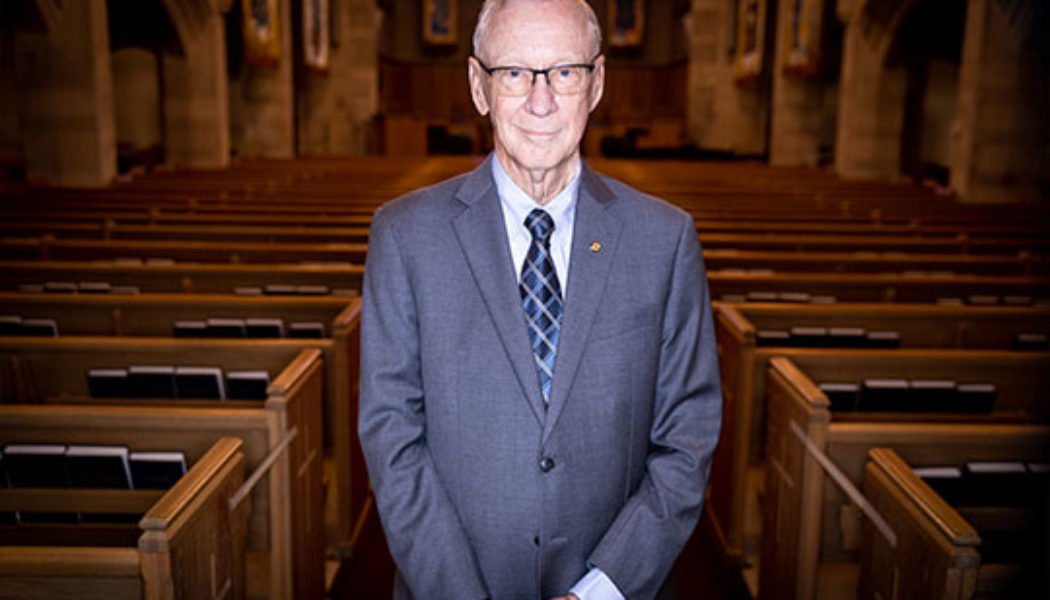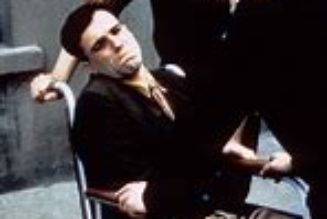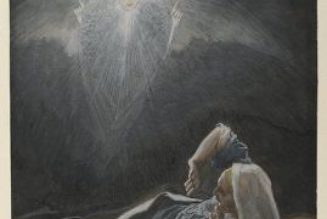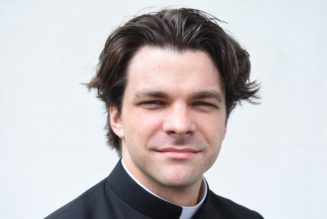
A Christian College Isn’t Batting An Eye In Its Showdown With The Federal Government
Summary: A Biden administrative directive is forcing colleges and universities to open dorms, bathrooms, and showers to members of the opposite sex. But College of the Ozarks President Jerry Davis refuses to let that happen at his Christian institution.
“So many kinds of green,” a student comments, looking out the window of the van carrying her across her college campus. She has lived on these thousand acres for more than two years, but still delights in the same pastoral scenes that bring the tour buses up from nearby Branson several times a week.
Soft, low hills rolling on and on into the Missouri distance. Tall trees, alive with bird choirs, and crisp lawns that weave between dorms and classrooms … a gymnasium and a chapel … the mill, the greenhouse, the dairy, the hog farm.
Here and there, a student on the landscaping crew hops off a truck and swims through the 100-percent humidity toward his next chore. Other young people stride up the long, steep rise toward their jobs at the crown jewel of the campus, The Keeter Center hotel and restaurant, their white shirts already damp in the morning sun.
It’s summer at College of the Ozarks.

College of the Ozarks
If you have to work on this beautiful, blazing day, the college is a cheerful place to do it. And if you’re a student at College of the Ozarks, you have to work. This is a work school, meaning the nearly 1,500 students here don’t pay tuition, they earn it — laboring for at least 15 hours a week at one of the nearly 100 workstations available or assigned.
Scrubbing pots in “the dish pit.” Pouring cups at The Keeter Center coffee counter. Romping with youngsters in day care. Answering phones in the alumni office, making beds, weaving baskets, milking cows. All of that, for many students, in addition to the extra hours they pick up with off-campus employers.
No wonder The Wall Street Journal named it “Hard Work U.”
Many a parent fantasizes about sending their child to a school like this, but administrators make it clear this is no year-round camp for young couch potatoes. Ninety percent of the students at College of the Ozarks demonstrate serious financial need. They come because their parents are missionaries … because they grew up in foster care … because they have 10 siblings and their parents run a farm … because they can’t afford to get this kind of Christian education anywhere else.
“This is not Easy Street,” says Dr. Sue Head, vice president of cultural affairs and dean of character education, whose title is nearly as long as the climb up Keeter Hill. “Our students aren’t going to get their college education another way. They have to work. The mission of this institution is to help those without the means … and there’s no mission drift here. They get a grade in their work, and it goes on their permanent transcript.”
That translates into many things — some spiritual, some practical — according to administrators, alumni, and the students themselves. On Career Day, Head says, “students are getting job offers on the spot. Employers don’t really even care if they have the skills — they just want the work ethic.”
“It’s not just a work college. It’s the character. It’s the patriotism. It’s the academics. Everything here is taken to that higher level.”
—Matt Farmer, College of the Ozarks Alumnus
It’s more than the students’ reputation for working, says Matt Farmer, Class of 2012, a nursing administrator at a local hospital who also runs a popular coffee shop in the community. “I can find people who want to work hard, but the values, the character — that’s the thing that really sets C of O apart. I can trust that the people who are going here and have graduated demonstrate and keep a certain set of values.
“It’s not just a work college,” he adds. “It’s the character. It’s the patriotism. It’s the academics. Everything here is taken to that higher level.”

But that higher level is fast becoming a major battleground, not only for the future of College of the Ozarks, but for religious freedom in America. Many at the school, including its formidable leader, believe that battle can be won.
But, like the path to The Keeter Center, it’s going to be uphill all the way.
The showdown that may have far-reaching repercussions for Christian schools all over the country began a long way from the Ozarks, in the Washington, D.C., offices of Alliance Defending Freedom’s Regulatory Litigation team.
Attorneys on that team are developing a new approach that takes legal strategy even deeper than what the ministry has specialized in for nearly 30 years. Rather than moving to defend those already caught in a legal snare, Regulatory Litigation is charged with figuring out where the next snares are being laid. Studying the agenda and activities of the current presidential administration, ADF attorneys realized that a veritable trap line was being set around the federal Fair Housing Act.
The FHA is part of the Civil Rights Act of 1968. Applied to all housing in America more permanent than a hotel room, it was designed to prevent landlords from denying a dwelling place because of people’s inherent characteristics like race or sex — i.e., keeping black people out of a given neighborhood, or sexually harassing female tenants. The Biden administration, though, has opted to reinterpret that original purpose. Not by urging Congress to change the law … but by issuing a directive on the U.S. Department of Housing and Urban Development website.
The directive, says ADF Senior Counsel Julie Marie Blake, declares that “the Fair Housing Act’s protections against discrimination on the basis of sex now include sexual orientation and gender identity.” That means every college and university — including those grounded in Christian convictions and biblical beliefs — can be forced to open their dorm rooms, locker rooms, bathrooms, and shared shower spaces to members of the opposite sex.
“This new directive applies to private, religious college campuses, even if they turn down every cent of federal money, in keeping with their strong First Amendment convictions,” Blake says. “And there’s no way out.
“Do you own housing in America that you rent to students? If so, the Fair Housing Act applies to you … and now it’s got a new mandate.” Colleges that do not comply face fines of up to six figures.

Julie Marie Blake
ADF attorneys didn’t want the government taking the high ground for the coming battle while educators sat idly waiting for crippling fines and penalties to be imposed. They wanted to take the battle directly to the administration, in a way that would show how faceless bureaucratic mandates pose a mortal threat to freedom of speech and religious liberty.
But ADF is not a college, Blake points out; it can’t bring suit itself. Christian colleges would have to learn about this nationwide mandate buried on a government website, recognize the threat, and be willing to “poke the bear” by taking on the federal government in a case where failure to fight could lead to devastating consequences.
“There are three options,” Blake says, for Christian colleges under this new FHA directive. “One, the college can ignore its religious beliefs and just comply. Two, the college can refuse to do what they’re being told to do, pay massive fines over and over again, and potentially suffer criminal penalties. Going out of business is a possibility. Going to prison is, too.
“Option Three is exiting the business of providing student housing.” No more dorms, no more students living on campus … and the likelihood of a significant, if not fatal, drop in enrollment.
Those are sobering options for any college official to contemplate, even against the chance of a landmark legal victory for Christian education and religious freedom in America. Yet no religious school in the country — even of those able to grasp the true nature of the government’s bureaucratic threat — stood up to confront that challenge head on.
Except one.
“People say, ‘What is your legacy?’” Dr. Jerry C. Davis, president of the college, smiles. “They ask you that when you’ve been around a long time.” The average tenure of a college president is estimated at five-to-six years. Davis, age 77, has been at College of the Ozarks for 33.
He didn’t come by the usual route. Born in rural Georgia during World War II, he was one of three wild brothers deserted by their dad, then their mom, and raised by grandparents. His brothers found their destinies through military service; Dr. Davis found his in a work school.
“I learned how to work,” he says. “I learned the value of work.” He also found people who believed in him and nurtured his confidence, particularly in the classroom. He earned a doctorate in biological sciences, with a focus on entomology. At Ohio State University, he taught the hard sciences (“If it had ‘ology’ on the end of it, I probably taught it”), but found a growing interest and talent for fundraising.
“It’s a high-risk thing, very meaningful,” Davis says. In time, he learned what kind of people give to a college, and why. “I just sit and listen,” he says, marveling at how many of his fellow presidents won’t make the time to visit and learn from the people who support them. “A lot of people just want you to listen.”

Jerry C. Davis
At 33, Davis was hired to lead another work college, deep in financial distress and far adrift from its philosophical moorings. “I fit the type of kids they were trying to help,” he says. “I was told to ‘make it more like it used to be, or you’re going to preside over closing it.’” He took the mandate seriously, evicting the one-fourth of the student body who refused to meet expectations. Within a few years, the school was thoroughly invigorated — financially, academically, spiritually.
That’s when College of the Ozarks came calling, in need of a similar revival. Davis again held fast to the school’s founding principles, and spent his first decade grappling with recalcitrant faculty and administrators.
“There were people, including some faculty members, who wanted this to be Harvard on the White River,” Head says. “They didn’t really like this work thing, this impoverished student thing. They were trying to take it somewhere else.”
“It’s important that people know that you know who you are and what you represent, and that you’ve got the wherewithal to carry it out.”
—Dr. Jerry C. Davis, President, College of the Ozarks
“You’d think we were moving graveyards,” Davis says. “I said, ‘I’m here to carry the mission out. I’m going to do that, and anything that gets in my way is going to have to be pushed aside — because the mission is bigger than all of us. Including me.’
“It’s important that people know that you know who you are and what you represent, and that you’ve got the wherewithal to carry it out,” he says. That was eventually communicated … as was Davis’s genuine love for the students.
“He’s one of us,” says Linsey Garrison, a senior from Nixa, Missouri, and student body president. “He didn’t come from the best background. He’s been through it, like we’ve been through it, and even worse. He didn’t have really great opportunities, but he made it and he wants other people to make it, too.”
“If I hadn’t had the opportunity, where would I be?” Davis says. “Without opportunity, you can’t have the American dream. Well, you’re not going to have the opportunity if you don’t have the money to get it.”
Davis and his team set out to get the money. Today, College of the Ozarks has a substantial endowment — and one of the highest student / endowment ratios in the country. In exchange for their 15-hour-a-week work efforts, students partake of 50 fully accredited academic programs and graduate debt-free, with no loans to repay.

Linsey Garrison
But character education — a five-part program that emphasizes faith, patriotism, and cultural sensibility, as well as academic and vocational training — is at the heart of Ozarks’ mission.
“We tell them, ‘We’re trying to get you ready to take a leadership role in a culture that badly needs your help,’” Davis says. “But first you need to know what you believe in, and why you believe it. You need to get as well-educated as you can, and then you will be invited to the table of influence — otherwise they won’t listen to you. They’ll scoff at you.”
“You do have to make a personal sacrifice to come here, when it comes to your time and your priorities,” says Tatum Manary, a junior. “You really have to be disciplined and willing to give up some of the things that you love. You have to learn to be independent.
“It’s been hard, but it’s been worth it.”
“How you conduct yourself matters,” Davis says. “You will not survive if you don’t know who you are, what you believe, and have the courage to stick with it.”
Davis didn’t hesitate to partner with ADF when the Biden Administration issued its directive to redefine the federal Fair Housing Act. He was willing to let his college be the one that pokes the bear.
“You’re never going to get me to agree that the government has any right to tell us that we can’t honor our deeply held biblical convictions,” Davis says. “[This administration doesn’t] want religious liberty on the national agenda, but we’re going to put it there. I’m disappointed that people, in general, don’t see that if you lose religious liberty, you’ve lost everything. You’re out.”
Davis marvels that, to make points with the LGBTQ activists, the government is willing to undo the great work being accomplished by work schools like College of the Ozarks.
“So, [the government] is going to irreparably harm a school that, for over 100 years, has been doing what everybody in this do-gooder culture up there in Washington thinks we ought to be doing to help kids get a leg up who can’t afford it? What do they want to do, put us out of business? What are we going to have next? Reeducation camps if we don’t agree with them?”
He is saddened — but not deterred — by the lack of support from other Christian schools, and even from churches and denominations.
“This lawsuit tells you a lot about how much these institutions believe in who they say they are,” he says. “I haven’t heard from anyone [at other colleges]. I don’t see people doing anything. Where are they? I’m so disappointed in the people of faith. Above all else, they ought to be clamoring about religious liberty. It matters to everybody.”

Blake says Davis has the increasingly rare courage “to go out, stand, lead, and try and win a ruling that protects not just you, but everyone else … so that everyone else doesn’t have to make that choice.”
Garrison says that most students understand why Davis and his team are taking this action. “It’s not just waiting for something bad to happen,” she says. “It’s protecting us now so that we can keep our goals and keep on making people’s lives around here better. It’s giving people opportunities.”
Round One in the legal showdown went to the opposition. Earlier this year, a district judge in Missouri ruled in favor of the government and against College of the Ozarks.
“What the district court said was, ‘You’re not even allowed to challenge this in court,’” Blake says. “We have to wait until the government comes after us before we can have a judge say whether what they’re doing is lawful or not.”
ADF attorneys asked for an injunction that would block the FHA mandate while the case proceeds. The district judge rejected that request and dismissed the case.
“The judge said, ‘Come back later, after you’re in really big trouble’ — which is outrageous,” Blake says. “If they’re trying to make changes and enforce a new mandate on this now, the harm is already here.”
ADF attorneys appealed that request for an injunction to the U.S. Court of Appeals for the 8th Circuit, a court with a history of strong support for free speech and religious freedom, Blake says.
“I really think this court is going to care about the free speech aspects of the College of the Ozarks case,” she says. “We should win. I’m optimistic — but it’s a really big deal. The administrative state has done what it wants for a long time.”

Dr. Davis’ desk reflects both his considerable workload and his love for his country.
If the 8th Circuit chooses not to grant the injunction, College of the Ozarks will be under orders to comply with the FHA mandate beginning this fall semester.
“That’s not going to happen here, if I can help it,” says Davis. “I am not going to violate my conscience.” His team, his board, and the students all know Davis means that.
“If you call yourself a Christian and a believer, then you have to stand by that. You can’t make exceptions. You have to stand firm.”
—Linsey Garrison, Student Body President
“He was made for this,” Head says. “He really was. He’s lived his whole life this way. He’s not going to blink.”
“They’re going to come for us, and you have to be ready,” Garrison says. “If you call yourself a Christian and a believer, then you have to stand by that. You can’t make exceptions. You have to stand firm.
“Whatever happens, I know that C of O will be fighting until the very end,” she says, “defending their mission and their goals, defending the students and what this institution stands for.”
“I’m trying to wake people up,” Davis says. “For whatever reason, this school has been blessed with a unique mission, no debt, thousands of supporters all over the United States, and a board with the guts to keep it on the straight and narrow … so maybe we ought to be the ones to stand up and be counted. If not us, then who?”
“He gets that this is a moment that people need to stand for their values or there won’t be any values left to stand for,” Blake says. “The Biden administration is very aggressive in pushing the LGBTQ agenda. And they don’t respect free speech at all. They think everyone who’s against them is a bigot, and they intend to give no quarter unless directly ordered by a court to do so — and, even then, not until they’ve exhausted all appeals.”
“If you want to win, don’t wait for them to come after you. They are coming after you. If you want to win … you better stand up now.”
—Julie Marie Blake, ADF Senior Counsel
Other colleges and universities need to understand, Blake says, that “if you want to win, don’t wait for them to come after you. They are coming after you. If you want to win, as opposed to just being forced to knuckle under, you better stand up now.”
“People say to me, ‘You’re out here, stirring up all this trouble,’” Davis says. “No, the government is, and every religious organization in America ought to be fighting this. But why am I the only one in the ring?”
Listening to that, Head smiles. She knows him better than that.
“He doesn’t mind being alone in the ring.”
<!–
–>
Join Our Telegram Group : Salvation & Prosperity









